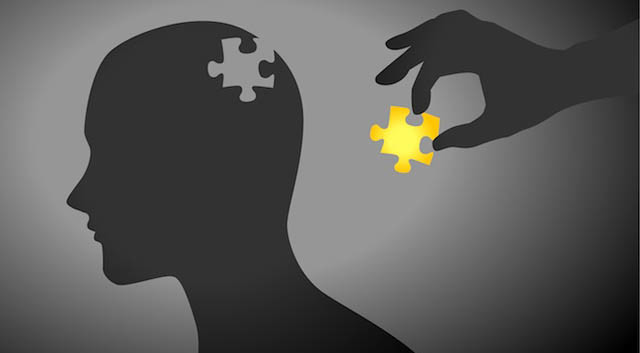Do you feel like you’re always checking things? Are you constantly making sure that everything is in its place, and that nothing is out of order? If so, you may be struggling with mental checking OCD. This type of OCD can be incredibly frustrating and debilitating, but there are strategies that can help you overcome it. In this blog post, we will discuss some of the best ways to stop mental checking OCD. We will also provide helpful tips for managing your compulsions.
Defining Mental Checking OCD
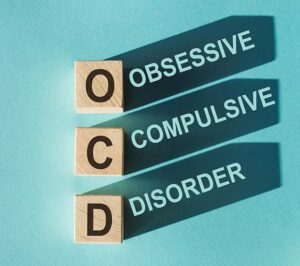
As the name might be able to guess, mental checking OCD is a type of OCD that is characterized by the need to constantly check things. This might include checking that doors are locked, appliances are turned off, or that you haven’t made any mistakes. People with mental checking OCD often feel like they have to check things multiple times. For some people, it might be more about making sure that everything is in its place. This might mean that they have to arrange things a certain way or that they have to keep their environment clean and clutter-free. For others, mental checking OCD might be more about safety. This can include instances such as:
- Checking that the stove is turned off multiple times
- Checking that all the windows are locked before going to bed
- Constantly looking for signs of danger
- Looking in the mirror multiple times to make sure you don’t have any bumps or bruises
- Avoiding certain activities or situations because they feel too risky
Mental checking OCD can also be about mistakes. People with this type of OCD might worry that they’ve made a mistake at work, or that they’ve said something wrong in a conversation. They might spend a lot of time going over things in their head, trying to remember if everything was okay.
The consequences of these actions can be significant. People often find that their compulsions take up a lot of time and energy. This can make it difficult to focus on other tasks, and it can lead to feelings of anxiety and exhaustion. In severe cases, it can interfere with work, school, and relationships. It can also make it difficult to take care of basic self-care tasks.
If you’re struggling with mental checking OCD, know that you’re not alone. This is a common type of OCD, and there are many resources available to help you cope. In the next section, we will discuss some of the most effective strategies for overcoming compulsions.
Strategies To Stop Mental Checking OCD
Now that we are clear about the basics of mental checking OCD, let’s look at some of the most effective ways to deal with it.
Identify and avoid triggers
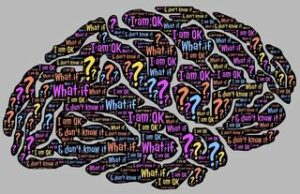
One of the best things you can do is to understand your triggers. What are the things that make your compulsions worse? Once you know what these triggers are, you can start to avoid them. This might mean avoiding certain places or situations. By doing so, you can reduce the frequency and intensity of your compulsions.
Let’s understand this by an example. If you are someone who compulsively checks that the stove is turned off, your trigger might be coming home to an empty house. In this case, you can avoid being home alone by making arrangements with family or friends.
Use distraction techniques
When you feel the urge to check something, try to distract yourself. This can be anything that takes your mind off of the compulsion. For example, you might try reading a book, listening to music, or going for a walk. The goal is to find something that will help you relax and take your mind off of the urge to check.
For instance, if you’re feeling the need to check that all the doors are locked, try reading a book or watching a movie. If you can find something that takes up your attention, it will be easier to resist the urge to check.
Expose yourself to your fears
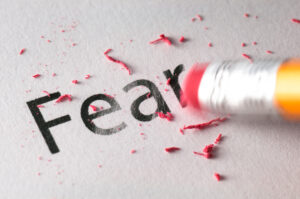
One of the best ways to overcome OCD is to face your fears. This might sound counter-intuitive, but it’s actually a very effective strategy. By deliberately exposing yourself to the things you’re afraid of, you can learn that they aren’t as dangerous as you think.
For example, if you’re afraid of leaving the house because you might forget to lock the door, try leaving the house and not locking the door. See what happens. Chances are, nothing bad will happen. This will help you to realize that your fear is unfounded and that you don’t need to check the door every time you leave the house. As and when you keep practicing this, you will realize that your compulsions are getting lesser and lesser. You can also start to apply this strategy to other areas of your life.
Challenge negative thoughts
People with mental checking OCD often have interrupting, irrational and negative thoughts. These might be thoughts such as: “I’m not doing this right,” “I’m going to make a mistake,” or “What if something bad happens?” It’s important to challenge these negative thoughts. One way to do this is to come up with evidence that disproves the thought.
Another way to challenge these thoughts is by using a technique called cognitive restructuring. This involves breaking down the negative thought into smaller, more manageable pieces. For example, if you’re thinking “I’m not doing this right,” you might break it down into “I made a mistake on one task, but that doesn’t mean I’m not doing this right.”
Involve your closed ones
It is an often practiced hack that when you involve your closed ones in your compulsions, they act as a distraction for you. For example, if you’re anxious about leaving the house because you might forget to lock the door, ask someone else to check the door for you. This will help to take your mind off of the compulsion and give you some peace of mind.
Another way of involving your loved ones is by talking to them about your OCD. This can be a very helpful way of dealing with the condition. It can help you to understand your thoughts and feelings, and it can also provide you with much-needed support.
Practice grounding techniques
Grounding techniques are a very effective way of dealing with OCD. They help you to stay in the present moment and focus on something else. This can be anything that helps you to feel calm and relaxed. Some examples of grounding techniques include:
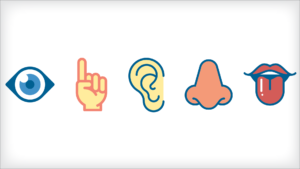
- Listening to calming music
- Focusing on your breath
- Counting to ten
- Chewing gum
- Counting your steps
- Taking a cold shower
- Eating something cold or sour
- 5-4-3-2-1 technique
- Repeating affirmations and mantras
All these activities can help one in keeping their focus on the present and not let their thoughts run wild.
Use tools and resources
If you have a tendency to keep re-checking and- seeking reassurance, it can be helpful to use tools and resources that help you to resist the urge and stop mental checking. For example, you could set a timer for five minutes and challenge yourself not to check during that time.
Another tool that can be useful is a worry box. This is a physical box where you write down your worries on pieces of paper and then put them in the box. This can help to reduce your anxiety because you know that you’re not forgetting your worries, but you’re also not dwelling on them.
Moreover, you can also give try some apps and websites that help you organize and remind you of things. This can be very helpful in dealing with mental checking OCD. Some other tools that can come in handy can also include:
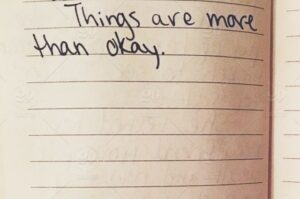
- A daily or weekly planner
- A to-do list
- Sticky notes
- An alarm clock
- Reminders on your phone
All of these are helpful in keeping track of things and help to ease the anxiety that comes with mental checking OCD.
Document your thoughts
This is one of the most effective methods to stop mental checking OCD. It involves documenting all your intrusive thoughts in a journal. This can help you to track your thoughts and see how they change over time. It can also help you to identify any patterns in your thinking.
Once you’ve identified these patterns, you can start to challenge them. For example, if you notice that you always have intrusive thoughts when you’re tired, you can try to get more sleep. If you notice that your thoughts are triggered by certain situations, you can try to avoid these situations.
The act of documenting your thoughts can also help to reduce their power over you. By putting them down on paper, you can see that they are just thoughts and that they don’t have to control you.
Get professional help

If you’re struggling to overcome OCD on your own, it might be time to seek professional help. A therapist can provide you with the support and guidance you need to get through this difficult time. They can also teach you specific techniques for dealing with compulsions. There are many different types of treatment available for OCD, and a therapist can help you to choose the right one for you. Some of the most popular ones include:
- Cognitive behavioral therapy (CBT): This is a type of therapy that focuses on changing the way you think about your OCD. It can be very effective in reducing compulsions and helping you to live a normal life.
- Exposure and response prevention (ERP): This is a type of therapy that involves exposing yourself to the things that trigger your OCD and then learning to resist the urge to engage in compulsions.
- Acceptance and commitment therapy (ACT): This is a type of therapy that helps you to accept your OCD and learn to live with it in a more positive way. It can be very helpful in reducing the distress caused by OCD.
- Psychodynamic therapy: This is a type of therapy that focuses on exploring the unconscious mind and how it affects your thoughts and behavior. This can help in mapping out the patterns in your thinking and help you to understand why you have OCD.
- Expressive therapy: This is a type of therapy that focuses on using the arts to express yourself. This can be very helpful in dealing with the emotions that come with OCD and also help you to express yourself in a more creative way.
All these are different approaches to therapy. However, they share one common end goal: to help you live a life that isn’t controlled by OCD. Seeking professional help is a very important step in overcoming and finding ways to stop mental checking OCD. It can make a world of a difference to your condition.
Conclusion
In conclusion of the above, it can be said that there are a lot of ways to stop mental checking OCD. It can be effectively dealt with by making use of different techniques and strategies. It can be very helpful to get professional help in order to identify the right approach for you. Remember, you are not alone in this battle. There is help available and there is an array of resources that can be of assistance. So, don’t hesitate to reach out and get the support you need.
If you are searching for a reliable, affordable, and effective source for seeking help for OCD or similar issues, reach out to Therapy Mantra. We are a team of highly trained mental health professionals offering online therapy services. Contact us today to learn more about how we can help you or your loved ones. Visit our website to book an online therapy or you may also download our free OCD treatment app on Android or iOS for more information.
